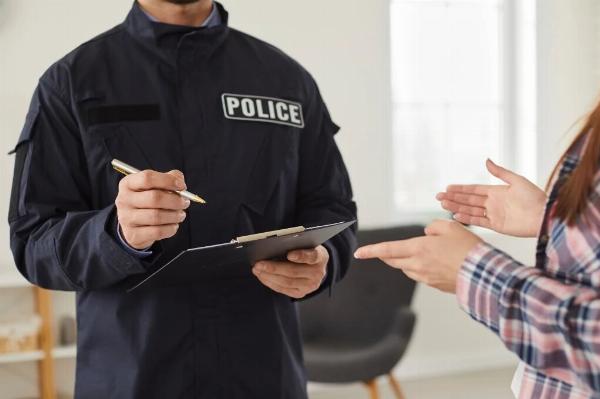Understanding the Police Check Process for Canadians Traveling Abroad

Strong 8k brings an ultra-HD IPTV experience to your living room and your pocket.
Traveling abroad can be an exciting and enriching experience. However, it often requires various preparations, including obtaining visas, vaccinations, and travel insurance. One crucial aspect that sometimes gets overlooked is obtaining a police check. This document can be essential for Canadians traveling abroad for work, study, or even extended stays. This article provides a comprehensive overview of what a police check is, the process for obtaining one in Canada, and key considerations to keep in mind.
What is a Police Check?
A police check, also known as a criminal record check or background check, is an official document issued by a police department or government agency. It provides a record of an individual's criminal history or confirms that an individual does not have a criminal record. This document is often required by employers, educational institutions, and immigration authorities to ensure the safety and security of individuals and communities.
Types of Police Checks
In Canada, there are several types of police checks that may be required, depending on the purpose:
Criminal Record Check: This is the most basic type of check and includes a summary of any convictions and findings of guilt under federal legislation.
Vulnerable Sector Check: This check is more comprehensive and includes a search of pardoned sex offenses. It is often required for positions involving work with children, the elderly, or other vulnerable groups.
Police Certificate: Often required for immigration or travel purposes, this document states whether or not an individual has a criminal record.
Enhanced Police Information Check: This check includes additional information such as pending charges, non-conviction dispositions, and local police information.
Why is a Police Check Required for Travel?
Many countries require a police check for Canadians traveling for extended periods, especially for purposes such as work, study, or residency. This requirement helps ensure that individuals entering the country do not pose a security risk. For example, the United States, Australia, and many European countries may request a police check as part of their visa application process.
The Police Check Process for Canadians
Obtaining a police check in Canada involves several steps. Here is a detailed breakdown of the process:
Step 1: Determine the Type of Check Needed
Before starting the process, it is important to determine the type of police check required. This will depend on the purpose of travel and the requirements of the destination country or institution. Consulting the embassy or consulate of the destination country can provide clarity on the specific type of check needed.
Step 2: Gather Required Documentation
To apply for a police check, you will typically need the following documents:
• Valid government-issued identification (e.g., passport, driver’s license)
• Proof of address (e.g., utility bill, bank statement)
• Completed application form (specific to the type of check required)
• Passport-sized photographs (if required)
• Payment for processing fees
Step 3: Choose a Method of Application
In Canada, there are several ways to apply for a police check:
In-Person Application: You can visit your local police station or an accredited agency to apply for a police check. This method may provide faster processing times and allows you to ask questions directly.
Online Application: Many police departments and accredited agencies offer online application services. This method is convenient and allows you to apply from the comfort of your home.
Third-Party Services: There are also private companies that offer police check services. While these services may be more expensive, they often provide expedited processing times and additional support.
Step 4: Submit the Application
Once you have gathered all required documents and chosen your method of application, you can submit your application. Ensure that all information is accurate and complete to avoid delays in processing. Some police departments may require you to submit fingerprints as part of the application, particularly for vulnerable sector checks or for certain countries.
Step 5: Wait for Processing
The processing time for a police check can vary depending on the type of check and the method of application. Basic criminal record checks may be processed within a few days, while more comprehensive checks, such as vulnerable sector checks, can take several weeks. It is advisable to apply well in advance of your planned travel date to ensure you receive your police check in time.
Step 6: Receive Your Police Check
Once your application has been processed, you will receive your police check document. This may be sent to you by mail, or you may need to collect it in person, depending on the method of application. Ensure that the document is accurate and that it meets the requirements of your destination country or institution.
Key Considerations During the Police Check Process
Obtaining a police check can be straightforward, but there are several key considerations to keep in mind:
Accuracy of Information: Ensure that all information provided in your application is accurate and up-to-date. Any discrepancies can result in delays or rejection of your application.
Processing Times: Be aware of the processing times for different types of checks and apply well in advance of your travel date. Delays can occur, especially during peak travel seasons.
Requirements of Destination Country: Each country has its own requirements for police checks. Check with the embassy or consulate of your destination country to ensure you meet all requirements.
Privacy and Security: Ensure that your personal information is protected during the application process. Use official and accredited channels to avoid fraud or misuse of your information.
Cost: There may be fees associated with obtaining a police check. These fees can vary depending on the type of check and the method of application. Be prepared to cover these costs.
Validity Period: Police checks have a validity period, which can vary depending on the type of check and the requirements of the destination country. Ensure that your police check is valid for the duration of your stay abroad.
Common Challenges and How to Overcome Them
Obtaining a police check can sometimes present challenges. Here are some common issues and tips on how to overcome them:
Delays in Processing: Delays can occur due to high demand or incomplete applications. To avoid delays, ensure that your application is complete and accurate. Apply well in advance of your travel date to allow for any unexpected delays.
Incomplete Applications: Missing documents or incorrect information can result in your application being rejected. Double-check your application and provide all required documents to avoid this issue.
Fingerprinting Requirements: Some types of checks require fingerprinting, which can add time to the process. Check the requirements for your specific type of check and arrange for fingerprinting if necessary.
Miscommunication with Authorities: Misunderstandings or miscommunication with police or immigration authorities can cause issues. If you are unsure about any aspect of the process, seek clarification from the relevant authorities or consult with a legal advisor.
Obtaining a police check is an essential step for Canadians traveling abroad for work, study, or extended stays. Understanding the different types of police checks, the application process, and key considerations can help ensure a smooth and successful experience. By preparing well in advance and following the steps outlined in this article, you can obtain the necessary documentation to meet the requirements of your destination country and enjoy a worry-free travel experience.
Note: IndiBlogHub features both user-submitted and editorial content. We do not verify third-party contributions. Read our Disclaimer and Privacy Policyfor details.


